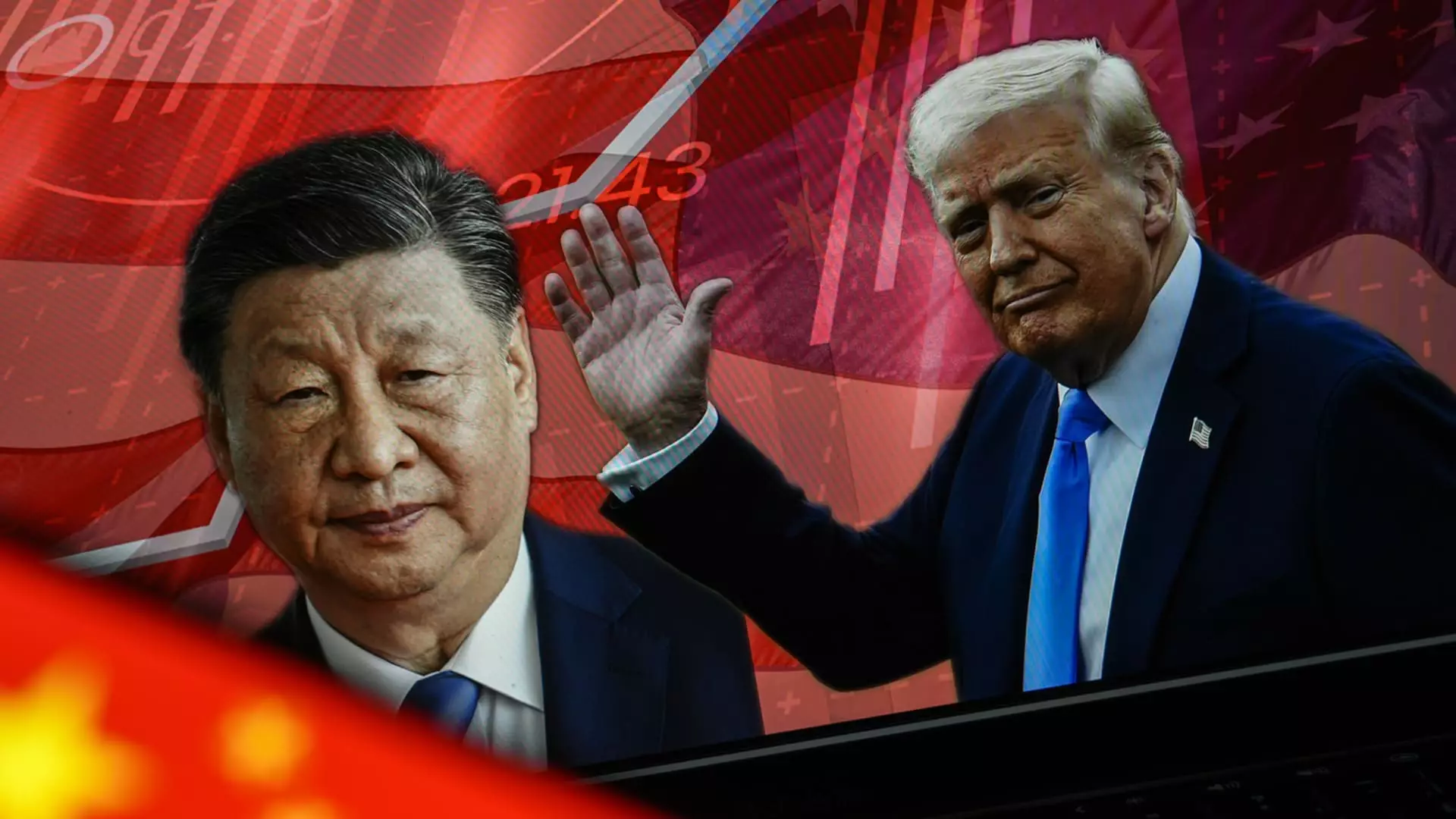In a stunning response to U.S. President Donald Trump’s brazen tariff hikes, China has signaled a resolute shift in its approach to trade retaliation. With calls from Beijing declaring the escalation of tariffs a “joke,” China has opted to cast aside the conventional tit-for-tat game and adopt a multi-faceted strategy that targets the heart of American business sectors. This bold shift reveals not just a nuanced understanding of trade dynamics but an underlying challenge to American economic dominance in global markets.
China’s recent imposition of substantial tariffs—reaching up to 125% on U.S. imports—might seem like a significant blow. However, the true depth of China’s strategy lies in a series of non-tariff measures that operate beneath the radar but have the potential to inflict serious damage on American interests. As I observe these developments, I can’t help but infer a calculated ploy to undermine U.S. influence by leveraging restrictions in a way that forces American firms to navigate a minefield of regulatory challenges and operational limitations within China.
Targeting the Services Sector
One of the most alarming aspects of China’s newly adopted strategy is its focused attack on the American services sector. Historically, the U.S. has enjoyed a significant surplus in services trade with China, which has predominantly benefitted American legal, consulting, and financial firms. Now, China’s overture to investigate these sectors raises serious implications for trade relations between the two nations. As someone who believes in the principles of liberalism—especially regarding open markets and fair competition—this development feels like an alarming regression toward nationalism and economic isolationism that I thought had been mostly relegated to previous eras.
Moreover, the prospect of curbing American legal consultancy firms indicates that Beijing seeks to extract an economic price for what it perceives as U.S. exploitations of intellectual property rights. These actions don’t simply threaten immediate financial losses; they also signify a broader cultural confrontation that could fracture the confidence American businesses have had in the Chinese market. For companies like Boeing, facing a halt in deliveries and future orders, the ramifications are dire and multifaceted, extending beyond just the balance sheets.
Escalation through Strategic Communication
The ramifications of this picture are further compounded by the strategic messaging executed by Chinese state media. By publicly accusing U.S.-affiliated individuals of cyberattacks and urging domestic users to abandon American technologies, China not only strengthens domestic pride but also reinforces the narrative of a foreign adversary seeking to undermine its sovereignty. This narrative is an incredibly potent tool in the context of a nation striving to solidify national identity and self-reliance amid growing external pressures.
Such tactics underscore a perfidious element of this trade war—one that is not merely economic but deeply psychological. The subtle, yet stark messages sent from China serve to sway public sentiment, both domestically and abroad. This strikes at the core of the liberal belief in the power of free expression and open discourse, as these moves pose a challenge to the ideals of transparency and accountability that underpin them.
The Potential for Broader Decoupling
The battle lines have been drawn not only along the borders of tariff-heavy goods but also extend into the very fabric of U.S.-China relations, encompassing technology, education, and cultural exchange. Nomura’s projections suggest that a staggering $24 billion might be at stake should Beijing escalate its restrictions on travel, a sector that inherently interconnects people and fosters mutual understanding. This decoupling—if allowed to run unchecked—could lead to a long-term schism that marries economic hardship with cultural detachment.
Indeed, with the specter of reduced student exchanges, limited technological collaboration, and the erosion of credibility for American businesses in China, we stand on the precipice of a troubling future. Such an outcome is precisely what I, as a center-wing liberal, find particularly disconcerting. A world that thrives on cooperation, camaraderie, and mutual respect is in peril, as both sides dig in their heels, releasing statements that read more like war cries than overtures for peace.
A Call for Negotiation Amid Chaos
Yet, amidst the growing enmity, there remains a glimmer of hope. Both U.S. and Chinese leaders have signaled a willingness to negotiate, albeit from positions they regard as needing to be equal. The art of diplomacy should ideally foster better understanding, yet in light of heightened tensions, it seems more a distant aspiration. In this strained environment, I urge decision-makers on both sides to adopt a posture of pragmatic negotiation rather than stubborn opposition. Peaceful resolution should not be a luxury reserved for favorable circumstances; it should be a priority transcending political posturing.
As we witness this interplay of economic warfare, it is crucial that we, as a global community, advocate for ties grounded not in hostility but in cooperation, moving toward a world where open trading relationships pave the way for greater prosperity, understanding, and a more balanced power dynamic.


Leave a Reply